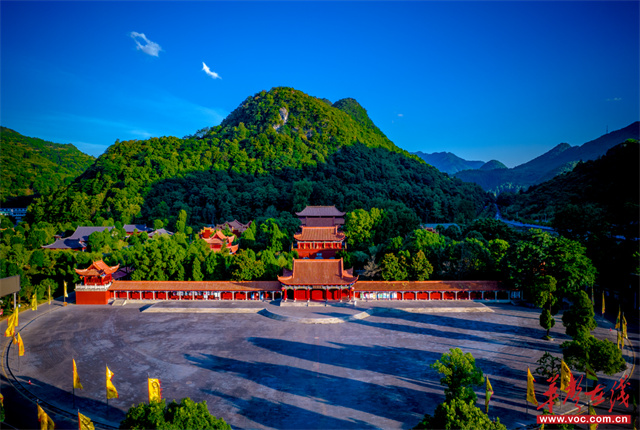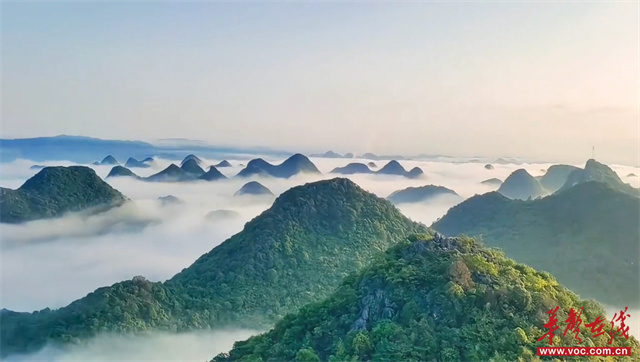Home>Tourism>Golden Travel Routes
Distinctive Themed Routes in Yongzhou

The Mausoleum of Emperor Shun. (Photo provided by the organizer)
Poetically known as "Xiaoxiang," Yongzhou serves as a transportation hub linking Hunan, Guangdong, and Guangxi, boasting both profound cultural heritage and stunning landscapes. The city is home to ten national forest parks, eight national wetland parks, and four national nature reserves. As one of the important birthplaces of Chinese civilization, Yongzhou holds the status of the "Birthplace of Virtue and Filial Piety Culture," as Emperor Shun was buried in Jiuyi Mountain after his southern tour. The region is a confluence of the Culture of Liu Zongyuan (a Chinese poet and prose writer), Neo-Confucianism Culture, Nvshu Culture, and Yao Culture, while the legacies of revolutionary pioneers such as Li Da, Tao Zhu, and Chen Shuxiang have further enriched this land with profound historical significance.

The natural scenery of Jiuyi Mountain. (Photo provided by the organizer)
As the host of the 4th Yongzhou Tourism and Development Conference, Ningyuan County stands as the core region for inheriting the culture of Emperor Shun. During the conference, three distinctive themed routes will be highlighted.
The "Tracing Virtue of Emperor Shun, Seeking Cultural Roots" route will guide visitors to national heritage sites such as the Mausoleum of Emperor Shun and the Ningyuan Confucian Temple, immersing them in the culture of virtue and filial piety.
The "Exploring Jiuyi Mountain, Embracing Wellness" journey invites travelers to explore Sanfengshi Scenic Area and Zixia Cave, offering them the chance to enjoy natural wonders and ecological wellness.
The "Discovering Yao Culture and Culinary Delights" tour showcases the rich cultural customs of the Yao ethnic group through intangible cultural heritage experiences like the long-drum dance, Yao herbal baths, and local delicacies such as Ningyuan blood duck.
Chinese source: Voice of Hunan

